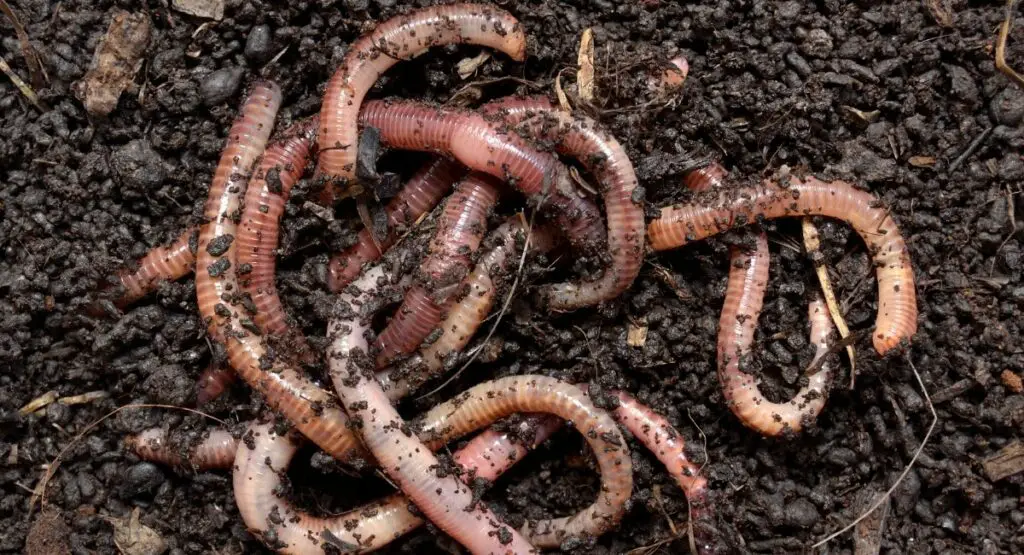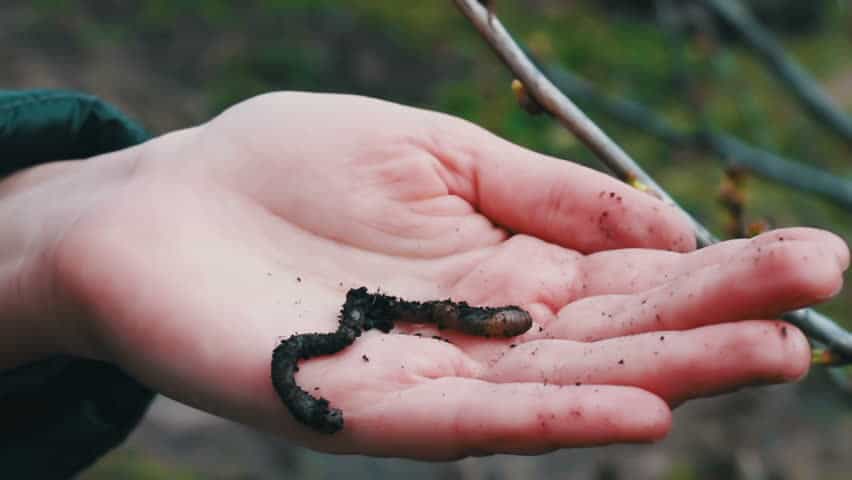Preventing earthworms from invading your patio is achievable through simple and practical methods.
By using salt, lime, proper drainage, mulch barriers, and sealing concrete surfaces, you can effectively deter earthworm activity.

How To Keep Earthworms Off Your Patio?
Earthworms can be a real problem for those who have patios. This is because they are attracted to the moisture and warmth of patio surfaces, where it’s easy access to food leftover from humans or pets as well as other sources such as over-watering vegetation.
This table illustrates the preference for using salt as the primary method to kill earthworms, with 500 individuals opting for this approach.
Lime is chosen by 150 people, while 100 individuals prefer other methods not specified in the article.
| Method | Number of People |
|---|---|
| Salt | 500 |
| Lime | 150 |
| Other Methods | 100 |
- OUTDOOR USE: Protects lawns, vegetables, fruit and…
- KILLS 260 plus INSECTS BY CONTACT: Kills above and…
- NON-STAINING: Non-staining to most home siding…
- CONCENTRATE FORMULA: Ready-to-spray QuickFlip…
- MONEY-BACK GUARANTEE: Guaranteed results or your…
- Scotts GrubEx1 Season Long Grub Killer can help…
- One application of this lawn care treatment kills…
- This grub killer also controls caterpillars…
- Apply this granular insecticide to a dry lawn in…
- One 14.35 lb. bag of Scotts GrubEx1 Season Long…
- INSECT KILLER: Army worm killer. Also kills listed…
- 3 MONTH PROTECTION: Kills listed soil insects for…
- USE ON: Soil and turf lawns and around the home
- PLUS MOSQUITO KILLER: Kills mosquitos in addition…
- COVERAGE AREA: Treats up to 5,334 square feet
- Made in United States
- INSECT KILLER: Army worm killer. Also kills over…
- 3 MONTH PROTECTION: Kills listed soil insects for…
- USE ON: Soil, turf lawns and around the home
- KILLS MOSQUITO: Kills mosquitos in addition to 30…
- COVERAGE AREA: Treats up to 10,000 square feet
You can find organic earthworm repeller HERE
Fortunately, you can take steps to keep earthworms off your patio areas using simple methods that require minimal effort on your part. Follow these 5 tips below:
1. Use Salt to Keep Earthworms Away
One of the simplest and most effective ways to get rid of earthworms is by using salt.
The process is straightforward – just sprinkle salt on the earthworms, and it will dehydrate and eliminate them.
Regular table salt works well due to its fine texture, but rock salt or kosher salt are also effective. Even seawater can do the trick if that’s what you have on hand.
2. Repel Earthworms with Lime
Lime serves as a natural repellent for earthworms, as they dislike its smell and taste.
By spreading lime on your patio, you create an environment that earthworms find undesirable, helping to keep them at bay.
3. Rake Up Fallen Leaves
Earthworms thrive on decaying plant matter, making areas with fallen leaves a prime location for them.
To prevent earthworm on your patio, regularly rake up leaves from hard surfaces like patios, driveways, and walkways. Dispose of the leaves away from these areas to avoid re-infestation.
4. Address Poor Drainage
Earthworms thrive in areas with poor drainage, as they seek dry land amidst flooded surroundings.
Ensure proper drainage around your patio and garden to discourage earthworms from making it their habitat. Well-draining soil prevents stagnant pools, making your patio less appealing to these creatures.
5. Create an Organic Barrier with Mulch
Mulch serves as a natural barrier against earthworms. By adding a four-inch layer of organic matter, such as wood chips or bark, around your landscaping features, you create an effective barrier that reduces moisture levels.
This helps deter earthworm activity, providing a long-lasting solution without frequent replacements.

How Do You Keep Earthworms Out Of Concrete?
If you’re dealing with earthworms burrowing into your concrete, follow these steps to prevent, treat, and eradicate the problem.
Step 1: Prevention
Seal your concrete surfaces using marine-grade epoxy paint or a product specifically designed for this purpose.
Applying a protective coating prevents earthworms from infiltrating the concrete, addressing the issue at its source.
Step 2: Treating the Problem
Apply an earthworm repellent along the foundation to lock out pests and prevent further infestations.
For added protection, use a perimeter spray to repel any stragglers. Ensure compatibility with your concrete by testing for color-fastness before application.
Step 3: Eradication
To eliminate existing earthworms in concrete, create a solution with 1 part salt and 10 parts water.
Pour this mixture into all cracks and crevices, including those around windows, doors, AC units, and drainpipes. This combination of boiling saltwater and freezing temperatures effectively eradicates earthworms.
Step 4: Prevention (Alternative Method)
If making a repellent isn’t feasible, consider using a commercially available earthworm barrier.
Look for products specifically labeled for heavy-duty outdoor use, ensuring they are suitable for your concrete surfaces.
You Can Find Some Here
Why Are Worms Dying On My Patio?
Understanding why earthworms may be dying on your patio helps address the issue and prevent future occurrences.
Environmental Factors
Earthworms can die due to dehydration or freezing in extreme conditions. Areas under patios and driveways expose them to changing temperatures and rain patterns, affecting their ability to produce protective mucus.
If you live in an area where earthworms are common, occasional discoveries of dead worms on your patio may be a result of these environmental factors.
More examples of ways people prevent earthworms on their patios:
Salt is a simple way of repelling and killing worms in your pavements after a heavy fall.
See if you can rustle up some millipedes, sowbugs, sprintails. If you find a spot with rich dark soil and lots of little creepy crawlies
Conclusion
By implementing these straightforward and effective methods, you can prevent earthworms from invading your patio and causing inconvenience. Choose the approach that best fits your situation and enjoy a worm-free outdoor space.






![What Gravel To Use For Patio Base [Best Options]](https://www.cleverpatio.com/wp-content/uploads/2021/11/What-Gravel-To-Use-For-Patio-Base-270x180.jpg)


Leave a Reply